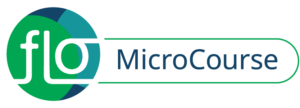 *Note: This MicroCourse has passed.
*Note: This MicroCourse has passed.
ChatGPT has disrupted formal assessments and caused concern among educators in post-secondary institutions. While many are approaching the topic with a policing lens, many suggest AI is here to stay, and instructors should help learners work properly with this technology. In this FLO course, you will explore ways to incorporate AI tools such as ChatGPT and other generative AI technologies into assignments. Give learners the option to use AI, teach them how to use it responsibly, and help them develop critical thinking, digital literacy, and creative skills. In this session, you will explore how to work with AI tools rather than fight them.
In this course, you will:
- Articulate concerns and opportunities for AI in student work.
- Understand the impact of AI on learner assessments.
- Design assessment strategies that incorporate AI.
- Design engaging alternative assessment strategies.
- Design feedback using AI.
This course will run for five days. Participants should allocate 90 minutes a day to work on the course and will participate in two discussion forums. There will be one optional 60-minute synchronous session on October 3, 2023 from 9:00 to 10:00 a.m. Pacific Time.
Facilitator Biographies:
Eliana Elkhoury (PhD) (she/her/hers) is an assistant professor at Athabasca University. She has extensive experience in teaching and learning in K–12 and higher education settings both in Canada and internationally. Her work focuses on alternative assessments, education in emergencies, and innovation in teaching and learning. Her current research interests include alternative assessment in multiple disciplines, innovation in teaching and learning, and equity in assessment practices. Follow Eliana’s work on alternative assessment.
Annie Prud’homme-Généreux (she/her/hers) was one of the founding faculty of Quest University, where she developed an innovative curriculum and experimented with diverse pedagogies and assignments. After several years working in administration and leadership in and out of academia, she returned to her roots and passion: teaching undergraduate science courses at the University of British Columbia. She has engaged in several faculty development initiatives that promote the use of authentic assessments, inclusive teaching, and inquiry-based learning, and she researches current practices in alternative assessments in STEM with Eliana. She is in the final stage of a Master of Open, Digital, and Distance Education at Athabasca University, where her thesis project explores guiding principles for policies on the use of AI in the classroom.
These sessions will be recorded and shared with participants in the course.
